Education Gives Suhani The Freedom Of Choice

Suhani* (12), a girl from rural Rajasthan, used to go to school until a few years ago. Unfortunately, Suhani struggled with making progress in reading and writing and had no way of getting support to improve her learning. Her parents rationalized that she wasn’t gaining much and so they stopped Suhani’s schooling. Suhani was then confined to cooking, cleaning, fetching water, handling the cattle and taking care of her younger siblings at home.
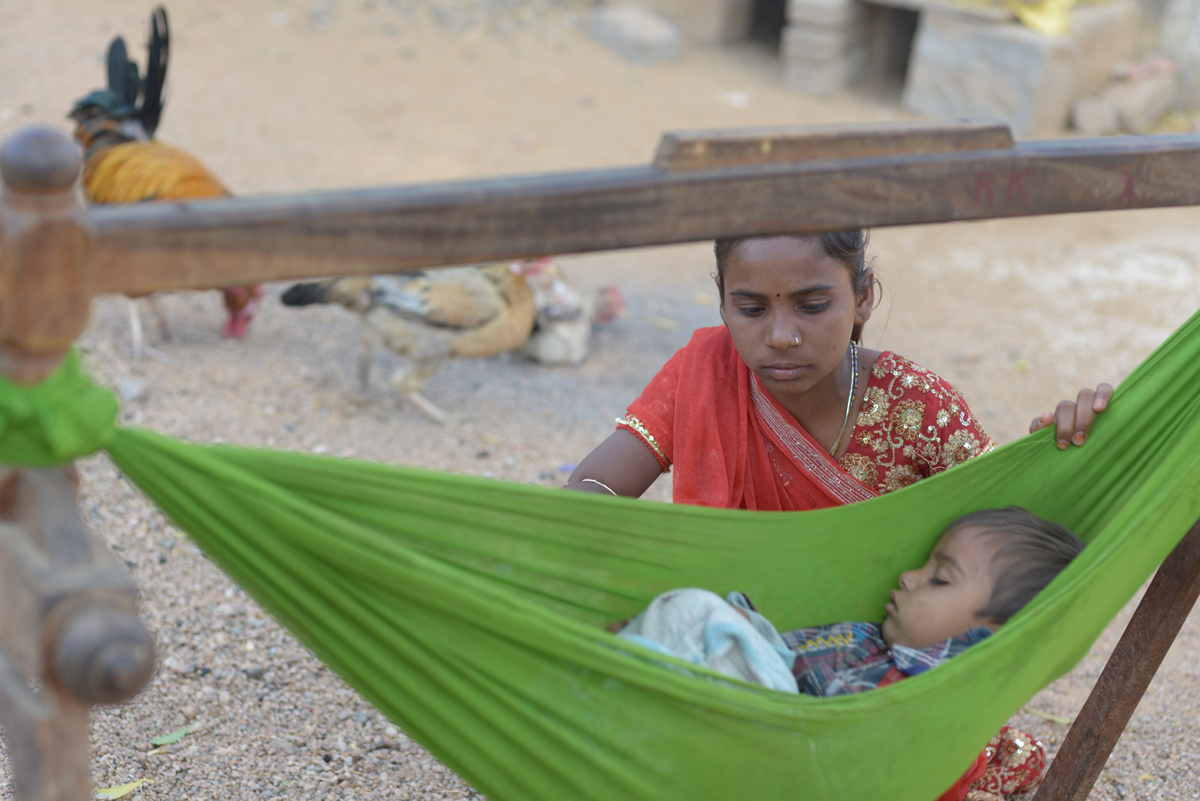
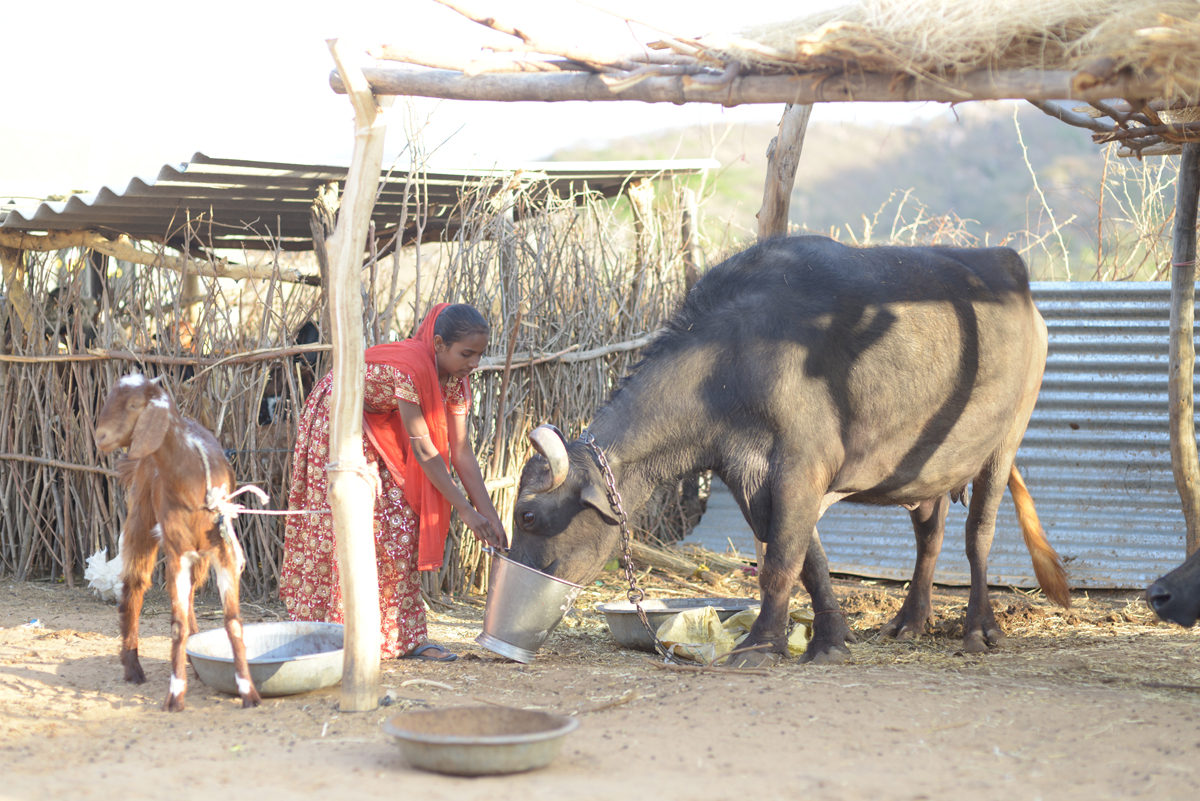
Narayan Lal Sarel and Team Balika Manju (Educate Girls’ field coordinator and community volunteer respectively) went door-to-door within Suhani’s village and identified Suhani as an out-of-school girl.
They spoke to numerous families, including Suhani’s, urging them to educate their daughters. Suhani’s parents were convinced that she couldn’t really benefit much from school. Excelling at household chores would be far more advantageous. After all, serving her husband and his family was her sole destiny. What was the point of investing in her education? The entire community shared this way of thinking.
Suhani says, “When Narayan ji spoke to my parents it had been 3 years since I dropped out of school. I did not know the importance of or feel the need for education. How could I? Most of the girls in my village were working at home, like I was, or were already married. It wasn’t odd. I didn’t know there was something else I should or could be doing.”
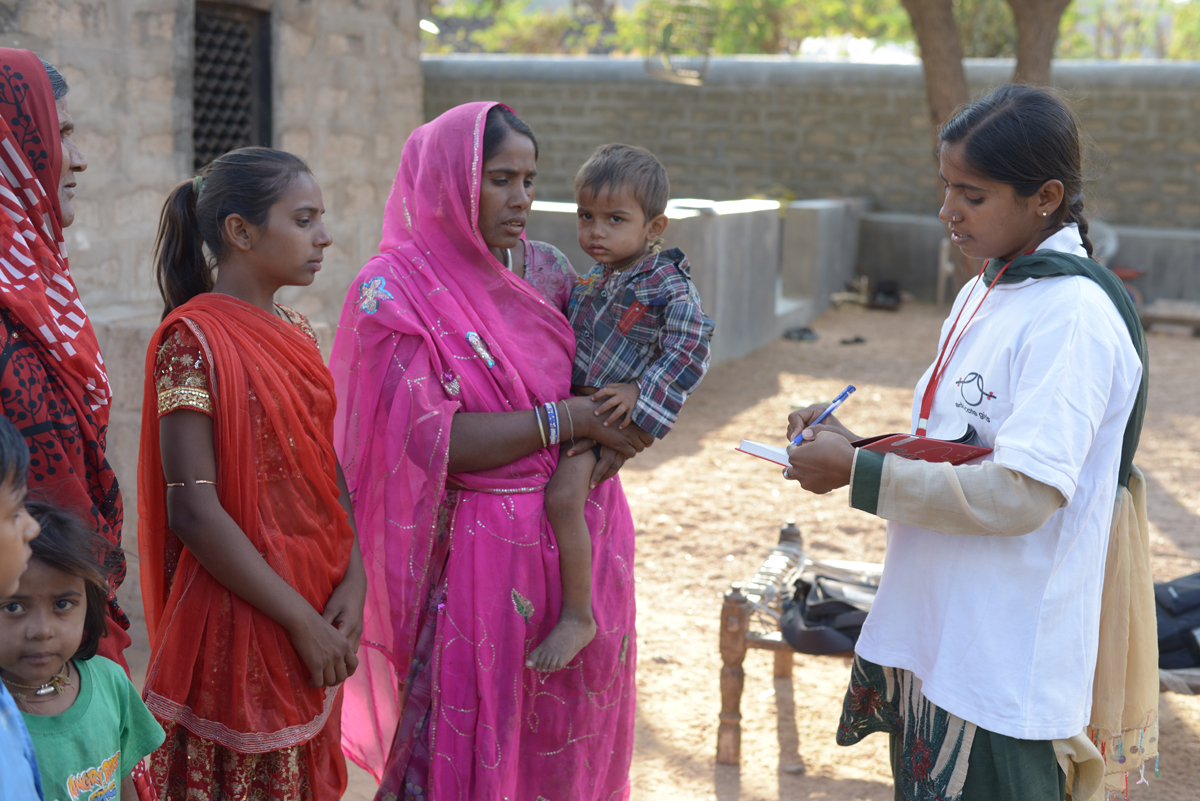
Many villagers were not always open to listening when approached individually. Narayan and Manju conducted community meetings in the village and spoke in length about the importance and benefits of education and how girls could contribute to the development of their community if given equal opportunities.
People weren’t comfortable with sending their adolescent daughters to school. Often, afraid that they could “get out of hand”, which would be detrimental as they were approaching marriageable age.
The villagers were then told about Kasturba Gandhi Balika Vidyalaya (KGBV), the free-of-cost residential government secondary school for girls. Girls from many adjoining villages would be studying there, the teaching and administration staff would be all-female and since the teachers were residents, after-class coaching for students could be provided.
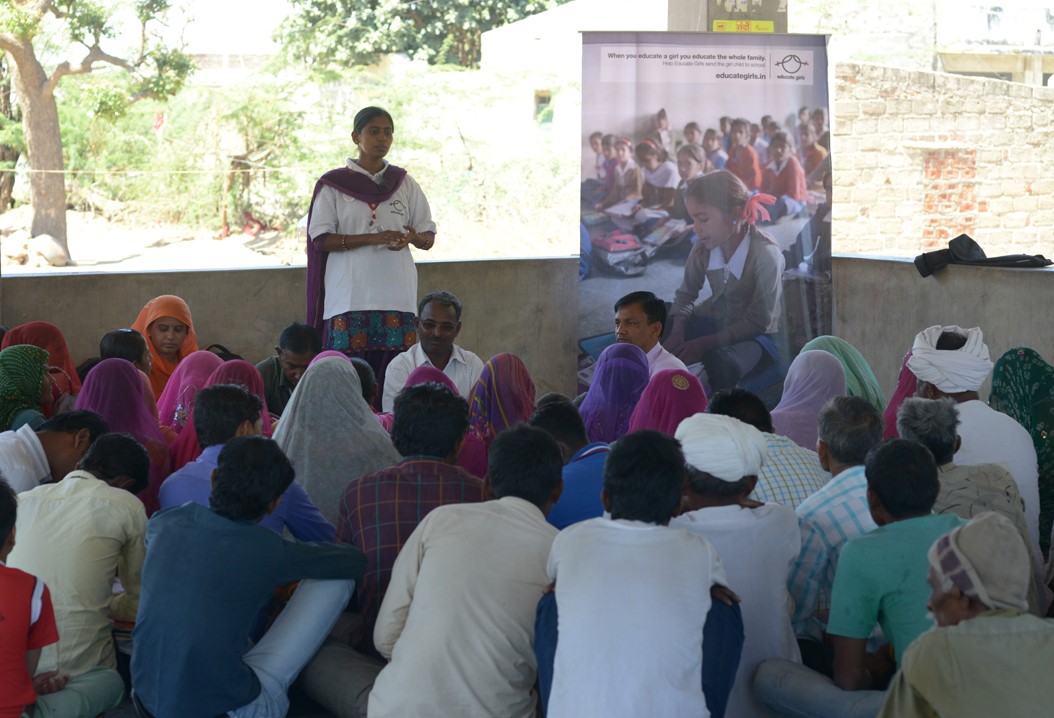
Manju took Suhani’s mother to the school, showed her the classrooms, lodging, kitchen and playground. She was introduced to the teachers and principal and was shown how Educate Girls used creative learning and teaching (CLT) techniques to improve quality of education.
Suhani’s parents finally agreed that studying at the KGBV would be good for her.
 Today, Suhani and her younger sister are both in school. Suhani took a bridge course to equip her with the basic learning levels needed and was entered in Class 6. She also receives extra help when she needs it. Narayan and Manju visit the school periodically and conduct Bal Sabha (Girls’ Council) sessions, engaging the members in activity-based games that can develop essential life skills.
Today, Suhani and her younger sister are both in school. Suhani took a bridge course to equip her with the basic learning levels needed and was entered in Class 6. She also receives extra help when she needs it. Narayan and Manju visit the school periodically and conduct Bal Sabha (Girls’ Council) sessions, engaging the members in activity-based games that can develop essential life skills.
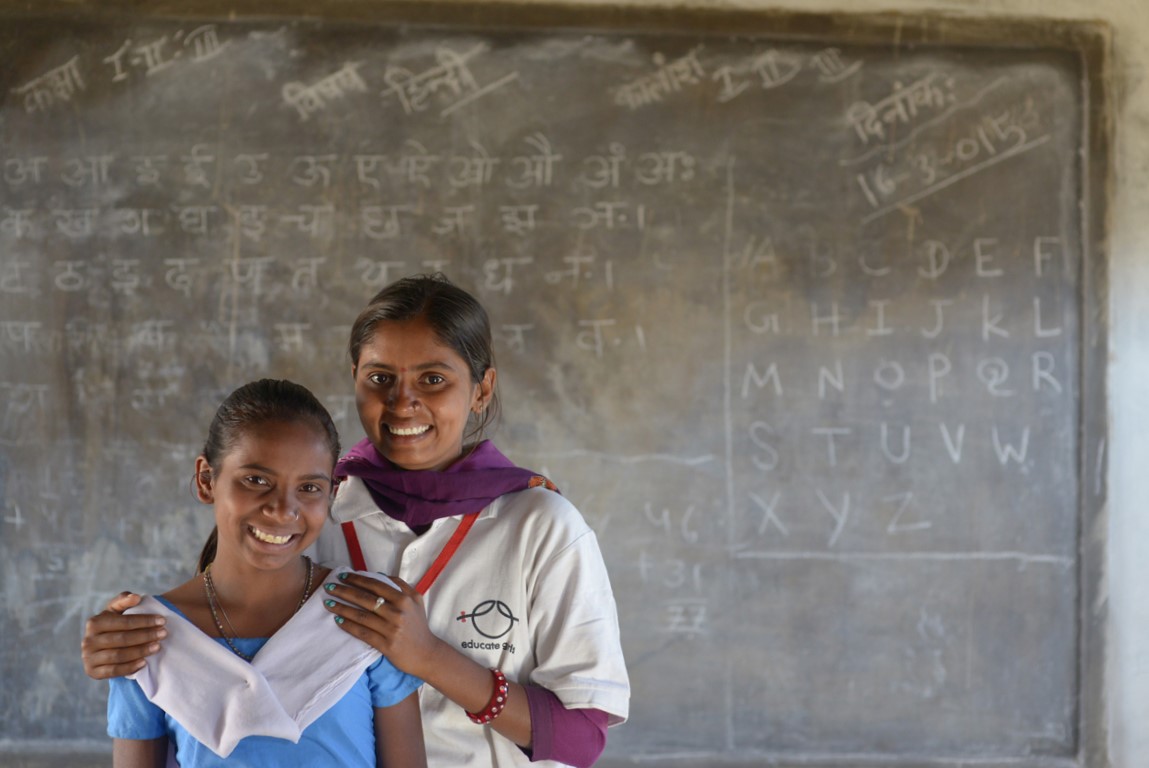
On a recent field visit some Educate Girls’ staff members from Mumbai met Suhani as well. She shared, “Now I have understood that it is education and not just household work that will equip me better for my development. Education is about more than just textbook learning. It gives me the freedom of choice. I’m not sure yet what I aspire to be, but one thing is clear. I want to study for as long as I can!”
*Name changed to protect the identity of the minor.
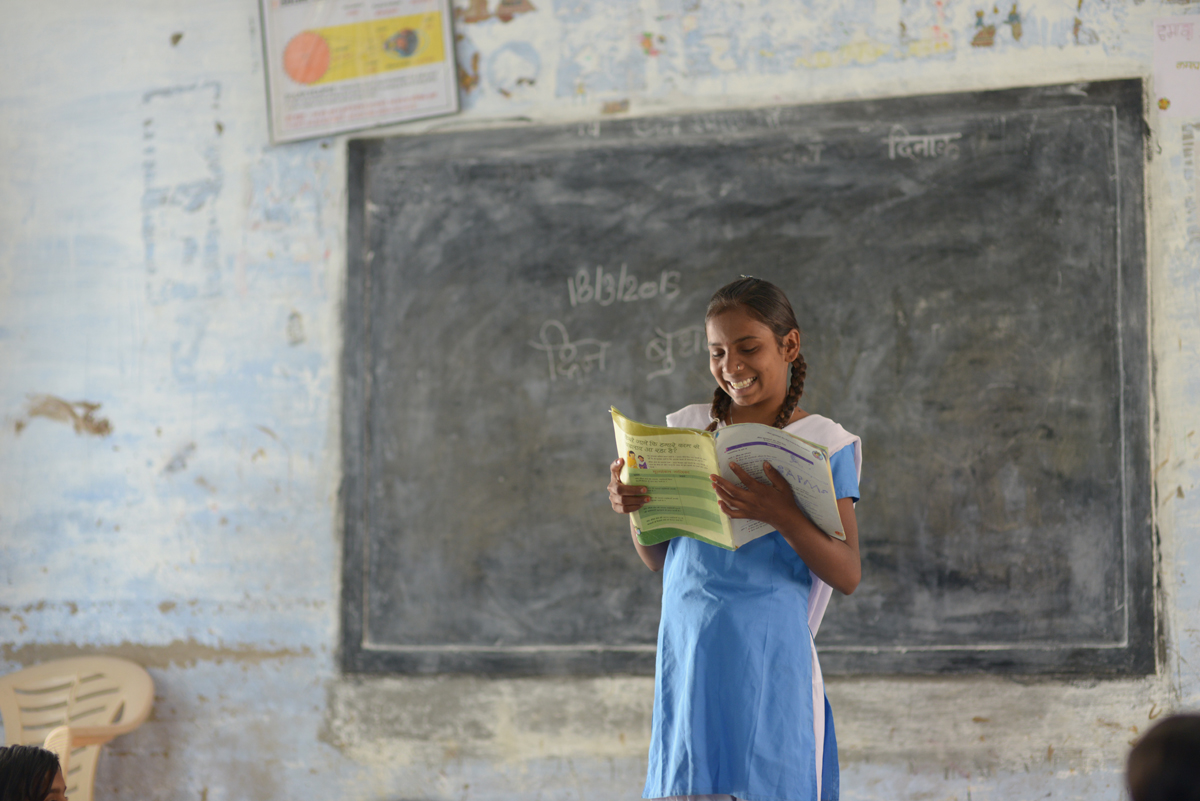
Educate Girls
Posted on November 30, 2015
Interested in contributing towards
educating girls?
Quick Links
Resources & More
Keep helping. Stay Updated.
Child Protection Policy | Privacy Policy | Terms of Use | Employee Login | IT Assets
Educate Girls is a project of Foundation To Educate Girls Globally (FEGG) | FEGG is registered in India under Section 8 of the Indian Companies Act, 2013.
© 2018 All rights reserved. Educate Girls.

